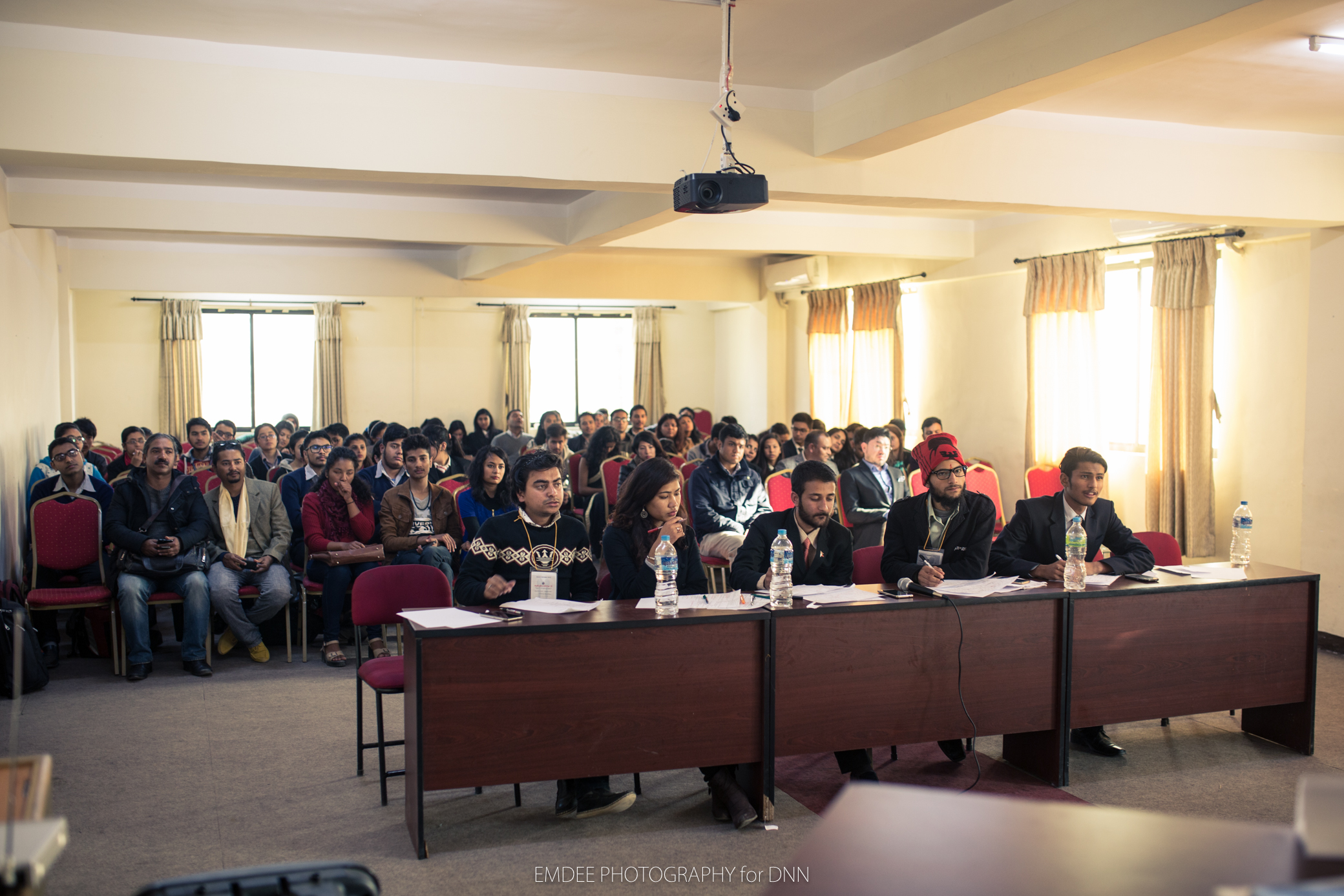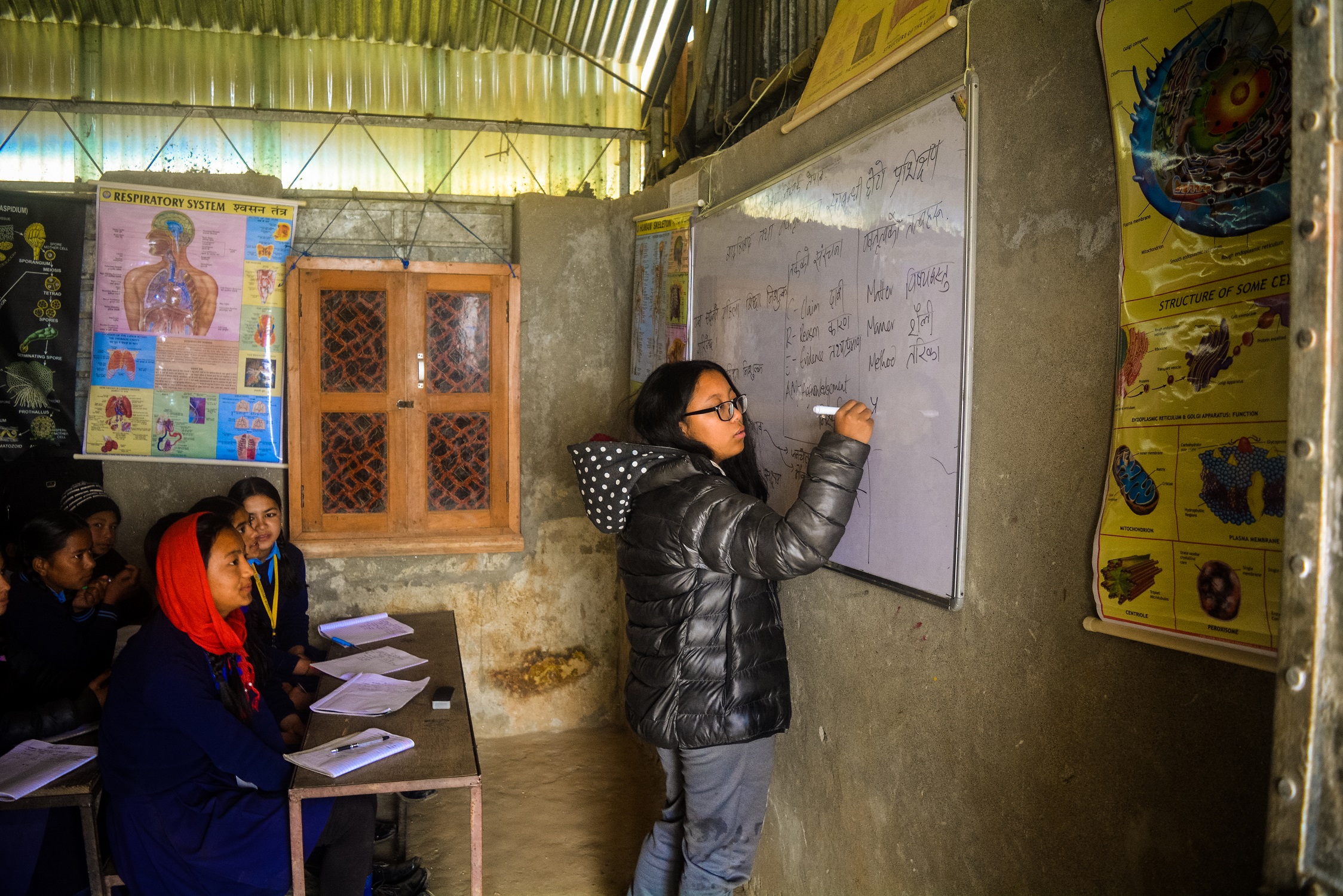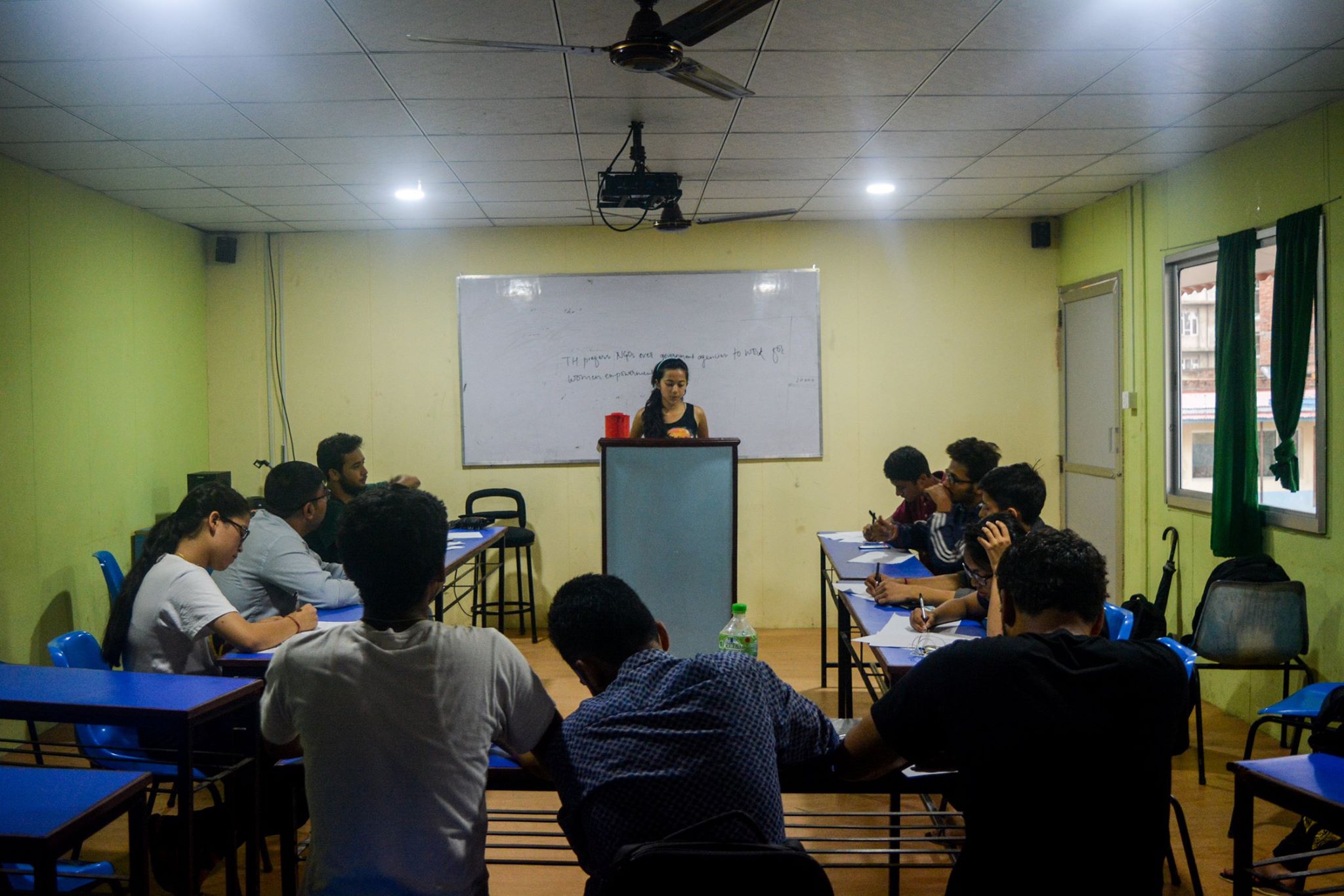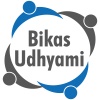Turning Weakness into Strength- A Story of Pradeep Ghimire and Debate Network Nepal, SOCIAL CHANGEMAKERS BLOG ISSUE NO. 13
Most youths often tend to target already established sectors to get involved in, because starting something from the early phase takes time and commitment which is not possible for everyone. Pradeep Ghimire is one of those exceptions who is trying to establish debate culture in Nepal from the roots. He and some of his friends formed a group to upgrade the traditional debate system that the country has been following. A local from Dolakha, Ghimire is a co-founder and director at Debate Network Nepal, an organization established with the aim to produce competent policy debaters from different parts of Nepal and contribute to the social development of our country through debate. He is also the founder and lead trainer of ‘Amplifying with Pradeep Ghimire’. The Catalyst had a privilege to meet him this week and talk about policies, the debate culture Nepal from past to present and the role Debate Network Nepal is playing in converting the weaknesses of youths into strengths.
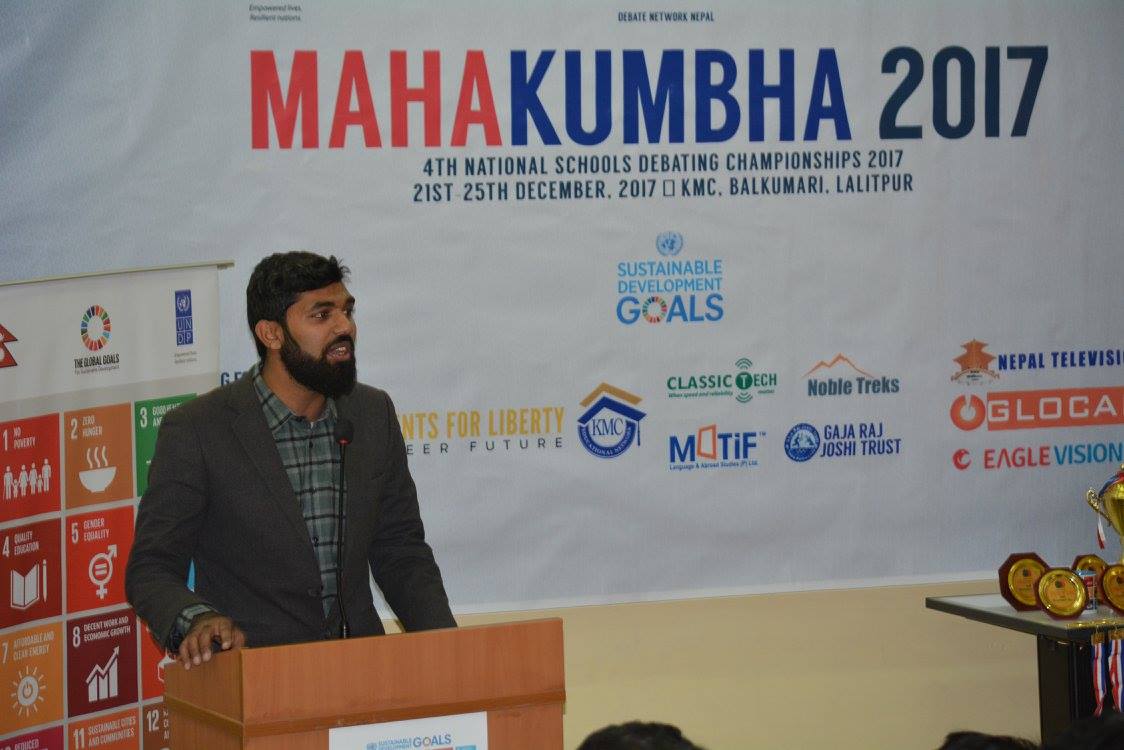
Tell us something about Debate Network Nepal. What was the initial idea to start Debate Network Nepal, what is its current mission?
Debate Network Nepal is a national debate organization with 27 general members in total and 9 members on its board. It reaches out to different groups of students from any institution. They can be in their gap year or be freelancing. We try to give them analytical skills, a principal level of debating skills and conduct practical level discussions on minor and major societal issues and consequences of different policies. Our philosophical goal is to make people think more on social, national and international issues, and explore solutions through dialogue and debate. Our five thematic areas include Empowerment, Establishment, Tournaments, Representation, and Advocacy. When we first started we didn't have a very big plan, but after starting the debate programs we knew we had to introduce the modern day parliamentary debate formats more and bring some fundamental changes in our organizational pattern to be competent in the global debate scenario. We didn’t know that we would reach this position when we first started. We started as a group of passionate people which later turned into an organized group.
What inspired you to start Debate Network Nepal, any story behind? In 2011, I used to go to the Smart Club. t was a platform to practice public speaking. It’s an old platform and still operational. One day convener informed me about the Chelsea Debate Fest in February 2012 and that it was about to happen soon. He wanted a team from Smart Club to take part in that fest and asked me whether or not I want to join the team. And I said why not. After that fest, I got selected for another debate tournament in Thailand called ‘IDEA Asia Youth Forum’. There were 18 people from Nepal including me who were selected for that tournament to fly from Nepal to Thailand and total participants from 22 different countries.
That tournament broadened my knowledge regarding debating. I got to know about every little detail and things. Two of my seniors, Sajal Pradhan, and Rishav Krishna Shrestha were studying in Thailand at that time. When they got back to Nepal, we organized a few debate programs jointly. After that, we started conducting weekly debate program. Likewise, we did more of that and gradually we scaled up. We were passionate about it, and it’s a good place to promote and get better at. Also, we enjoyed doing this. We saw the serious need to practice the modern day debate formats such as WSDC, BP etc. We were doing such things at a time when there were very few institutions giving a platform to improve debating skills. So, we thought if we could fill the gap, we could make an impact on society.
Why is it important for one to be better at the debate? Why do you think there is a need to debate culture in Nepal?
If you’re good at debate, it will help you in your personal and professional life like it did for me. I am getting to acquire knowledge on a wide variety of issues which really broadens my understanding of the world me. I found myself with the hunger to know more about different things happening around me.
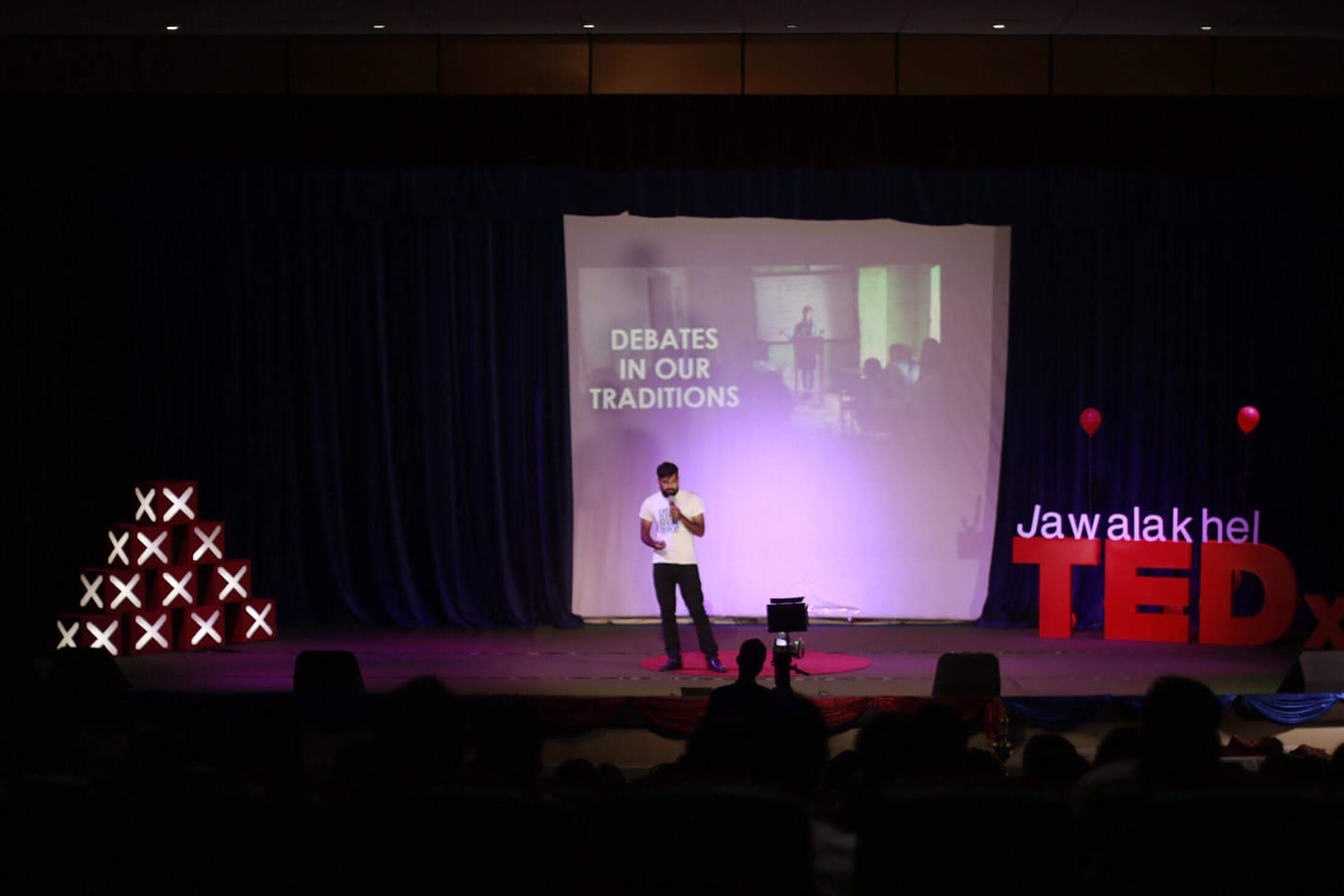
And not just that, through debate, you can analyze multiple perspectives too. My critical thinking skills got improved, which helped me to make a wiser decision in my life calculating all the angles. It gave me the confidence to speak in front of a mass audience and has made me a better listener. I also made a lot of good friends. I got so many opportunities to participate in international debates representing my country. The debate itself encouraged me to continue with our organization, whose ultimate goal is to serve the community. For example, when society becomes tolerant to some extent to an individual,
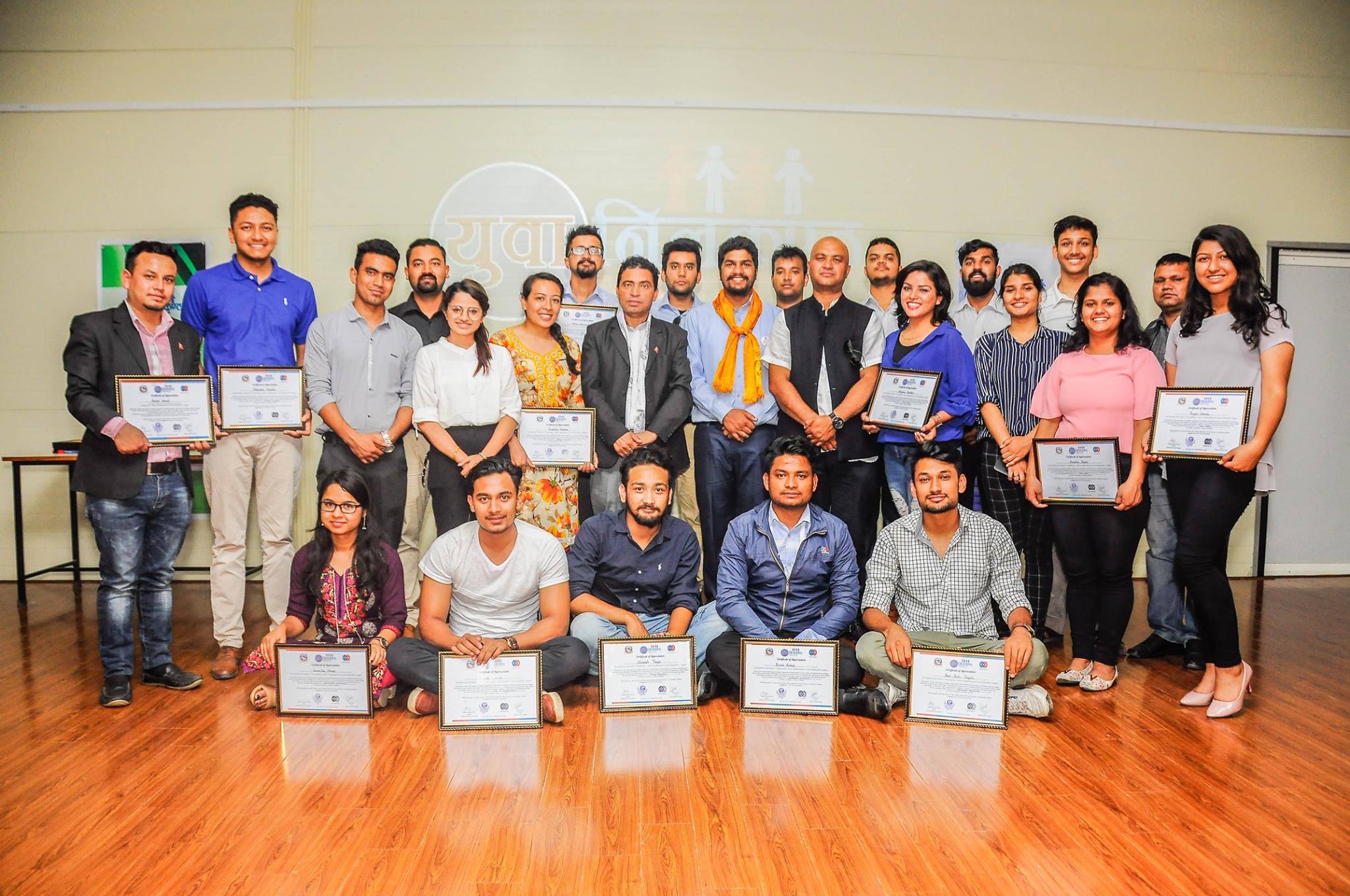
we develop more patience in listening to the next person’s views and thoughts on different things. It makes you be empathetic towards the other side of the story and makes you realize the fact that many times, there is no absolute truth. It helps you during the election in choosing the right candidates. See, if all these things are connected with debate culture, our entire country walks towards the intellectual world and rational decision-making. Hence, it helps from personal to the national level impact.
What are the challenges DNN is facing?
One of the issues that we are currently facing is sustainability. Many of our high school debaters leave the country for abroad studies. It makes us a little difficult because our community loses great talents. Furthermore, even though it's better than in the past, our society is still reluctant in accepting the true spirit of debating. Some Nepali schools still do not want to embrace the modern day formats of debating.
There are many debates ongoing every day; at Chiya Pasals, during the election,during political moments, on social media like Facebook, Twitter and so on etc., but what is lacking in such debates?
In many of these cases, the debate is unorganized and unstructured. There is no actual objective, no guideline, no use of data and statistics and it is done most of the time done just to pass time. Most of the times there is no logical flow of arguments. People debate not for the purpose of exchanging alternative thoughts, but for the sake of winning. Even these people are politically polarized so they don’t want to know about their own weaknesses. The format that we follow is objective oriented have good guidelines. We aim to build a logical argument, use engaging arguments and analyze things in a totally scientific and structured way. The type of debate culture that we follow at DNN is fair, healthy and balanced. I think the informal debates in our society should also move towards this approach.Do you think youths have enough knowledge to be able to participate in the debate? How is the reading tendency if they are?
We can collect information from a wide variety of different types of sources. At first, debaters used to panic about the topic assigned to them, but after their first debate, they gain a lot of knowledge. And if they made some mistake, they go back home and do some further research on that particular topic. So in this way, they broaden their knowledge through debate. Also, for them to get information on things, various manuals and magazines are available that are designed and written to prepare them for the debate. Reading is key in debating. One should read materials covering the angles around the topic chosen.
What are the things the articles published in national dailies are lacking?
I regularly check the national dailies and some of the articles are really good. And there are good writers and young writers with multiple perspective and analysis. But still, most of the articles lack depth. One paragraph argues, for one thing, the conclusion talks about something else and there is no logical flow in the middle. Maybe this is because the writer doesn’t have the knowledge about the structure
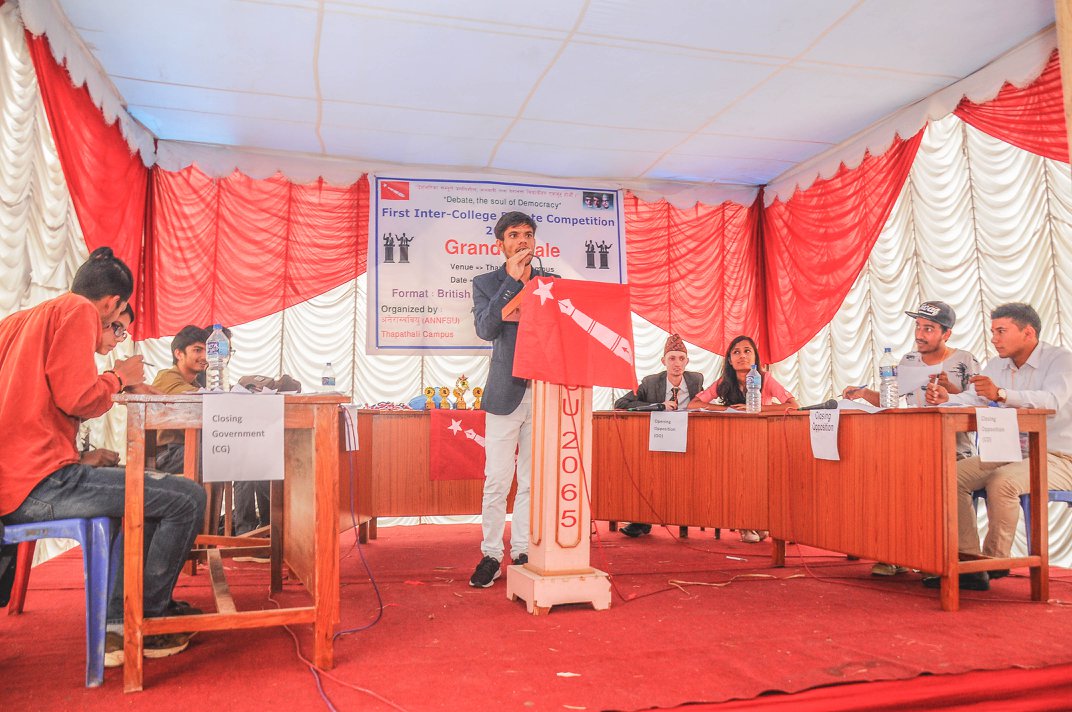
and development of the article. There are also many articles with a bias towards political parties, populist sentiment, and ultra-nationalism.
How have DNN empowered youths of Nepal? How does debate help the society?
A lot of students who called themselves an introvert didn’t feel good about talking to a big mass of people, who said debating is not their cup of tea, I have seen become a good debater after a few pieces of training and being motivated. Over time, they made huge progress and have done an excellent job. What we believe is that the birth of a good debater ultimately helps the society to do better and be better. The person will eventually do better in any field they choose, because of their thinking capacity. They can be trendsetters and change maker. So, just a birth of one single good debater for a longer run definitely serves the community. Already there are a few trendsetters, who can bring a rational change in the society. Now, there is a community formed among us to do better in Nepal.
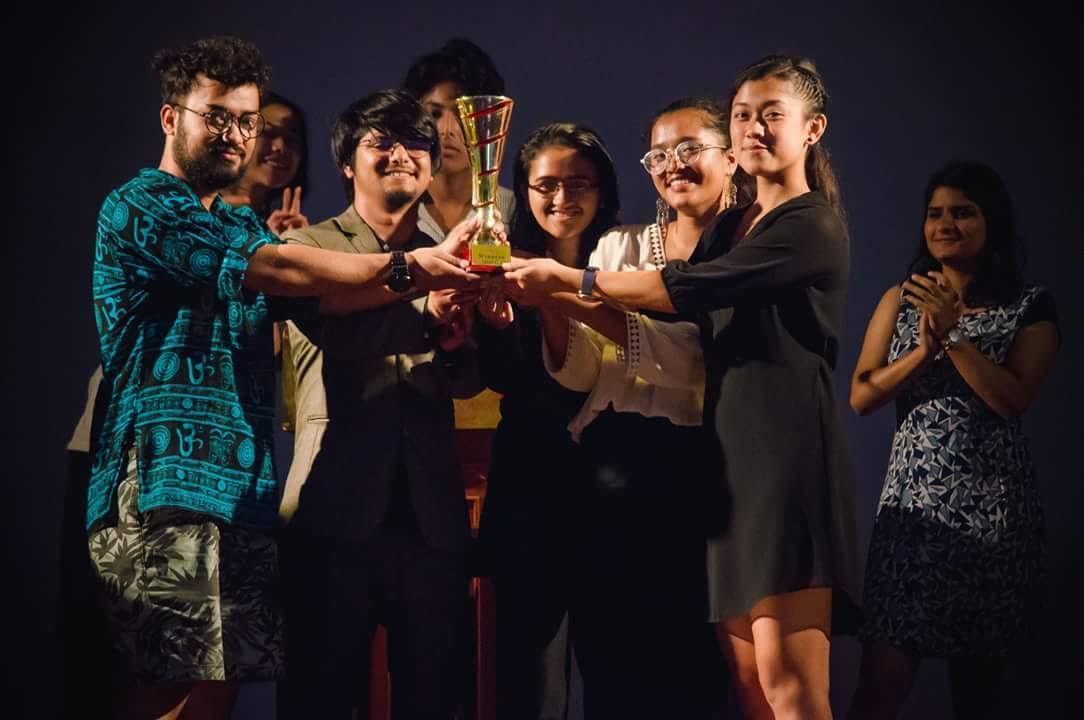
How many debate programs you have organized? What are the topics that you usually discuss?
If I need to count in numbers, it has crossed over 300 including mini and major programs and training. Our annual and major debate championships are MahaKumbha, MahaSangram, VidhuShe, Rastra Bahas and Law Debates. MahaKumbha is a National Schools Debating Championship organized by DNN in World School Debating Championship (WSDC) format. MahaKumbha is a debating tournament for students studying up to high schools. MahaSangram, which translates to “the ultimate battle”, is the annual British Parliamentary Debate Championship in Nepal, being organized by Debate Network Nepal. It is now the nation’s official and largest British Parliamentary championship, open for all people who are interested in debating. MahaSangram happens in both Nepali and English languages. Rastra Bahas is to promote Nepali language and it happens only in Nepali. ‘VidhuShe, International Women’s Debating Tournament’ is the international debate tournament debate tournament exclusively for women. Debaters in British Parliamentary (BP) debate format being organized in Nepal that happens only in English.And Law Debates is new to the list and for Law Students only. And other mini-debate championship and training are organized every other two months. Most of our tournaments are specific like theTech Debate that DNN and Pulchowk Campus collectively organize. Sometimes we organize Social Work Debates and social work related issues are discussed there. We also help organize a Medical Debate and all the motions are related to medical issues. However, for normal tournaments, depending on the objective of the debate we focus more on socio-political, socio-cultural, art, environment and cultural issues.
How can an interested individual be a part of your community?
It depends. For some of our training like Tarkashala we do ask for an application, which goes through a selection process. And if they get selected, they take the training and if not, they have to wait and apply again for the next training. Or they can be the part of our other workshops like Debate Aadhar that is designed for beginners and it usually covers a demo debate, interactive lecture sessions, drills, debate games, practice debate, individual feedback. We also built a debate club in the institution for sustainability of the learning where youths can come and practice debate.
At last, what do you want to share with people reading this blog?
If you believe in the existence of absolute truth in terms of religion, culture, politics, and more, I just want to say that your belief doesn’t necessarily have to have just one-sided. There are always multiple sides to any story and every point of view has its flaws.
Even if you support your beliefs, just try to gain a holistic understanding of issues. If you have any interest in debate or want to learn about it, we are always open for anybody, especially students and youngsters We also have programs for entrepreneurs and professionals. If you’re looking for an opportunity to learn, get better at debating or to represent Nepal abroad, we are very accessible. You can reach us through Facebook or email or directly come to our office. We ’ll support anyone who wants our guidance as far as possible.
Website: http://debate.net.np/
